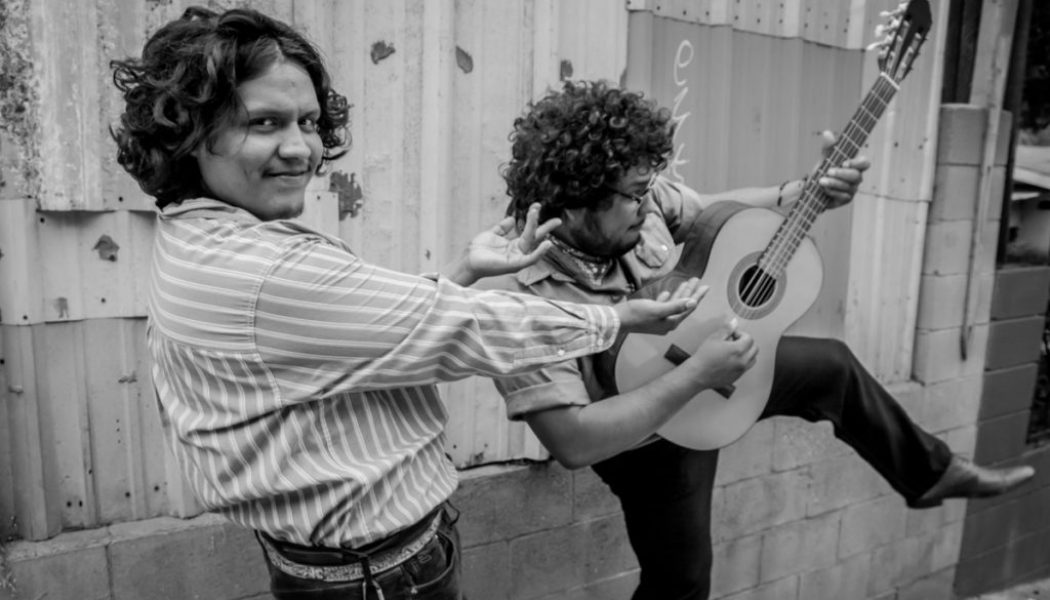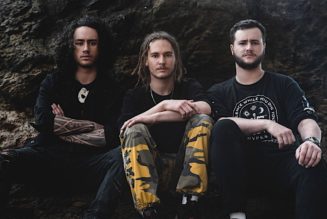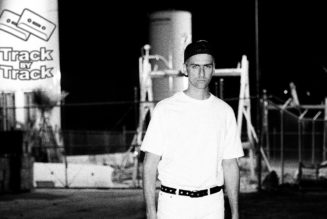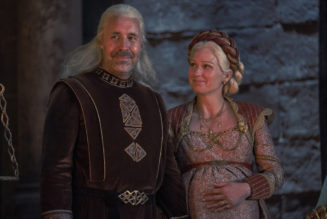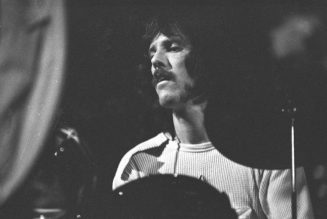
Brothers David and Rene Pacheco, co-founders of psychedelic cumbia act Tropa Magica, remember the moment all their hard work in the L.A. music scene finally paid off. Backstage after playing the 2017 Tropicalia Fest in Long Beach, California, the pair introduced their father to the pioneering norteño Mexican group Los Tigres del Norte, who have released around 50 albums since 1968.
“Our dad was like, ‘Ya la hicieron,’ (‘you made it’),” David tells SPIN.
Rene recalls that he was on acid — and says the occasion was so magical, he cried (though he also notes it could have just been the acid itself). Even so, the experience affirmed the trajectory of the band’s decade-long career.
“To me, that meant the world: just getting to have our parents meet some of their favorite musical influences or musicians, to see them meet them through our work — one that they helped support but weren’t so sure about at times — and to finally be like, ‘Look,’” Rene says.
The East L.A. duo made a name for themselves by combining alternative, grunge, and psychedelic rock with cumbia — a danceable genre that originates from Colombia and is typically grouped with tropical sounds like salsa, merengue and bachata, among many. But their new album, Tripiando al Infinito en mi Recamara (“Tripping Into Infinity in My Bedroom”) — out Sept. 4 — expands that sound by featuring diverse instruments and incorporating bossa nova, surf rock and disco. “This is like our Soft Parade album, only a couple of songs are familiar,” Rene says, referencing the 1969 Doors LP.
“This album is what it would sound like if you were to hear a garage symphony in East L.A.,” David says. “Something I always tell people is that we’re always aiming to try to make a Sgt. Pepper’s album.”
“Sgt. Pancho,” Rene quips.
While the tracklist is multifarious, the cumbia influence can still be distinctly heard, especially on both the Spanish and English versions of “Feels like Tijuana,” the theme songs for comedian Felipe Esparza’s new Netflix specials, Bad Decisions and Malas Decisiones, which premiered earlier this week. The Pachecos are featured in the intro playing along to their song on a guitar and accordion.
“It feels hella surreal. We recorded that scene back in January — pre-COVID — and never imagined things to change so drastically,” David says. “Seeing and hearing ourselves on Netflix is like we’ve come full circle. Our album release wasn’t planned around the Netflix premiere; it just happened serendipitously.”
Rene and David met Esparza three years ago at Tropicalia Fest, when Esparza asked the brothers if they had tried the tacos yet. When they expressed that the line was too long, Esparza went to his private tent and brought them some vegan tacos de carnitas — a longstanding relationship established through a shared enthusiasm for tacos. Tropa Magica went on to play Esparza’s birthday party a year later and were featured twice on his podcast, What’s Up Fool? Esparza also booked them to open his 2019 comedy show at the Microsoft Theater in downtown L.A. The brothers used the money from that gig to record their 45-inch vinyl, Smells Like Cumbia.
“When we did the Smells Like Cumbia EP, which is covers of Nirvana songs, it was like, ‘Here’s a crowd-pleaser; everybody is gonna like it,’ and it did really well because it’s a signature sound and it’s easy,” David says.
With all their success, it’s surprising to learn they were originally against playing cumbia or any form of Mexican or Latin music. But in their early days, they were adamant about making alt-rock, grunge and punk.
“My grandma, my aunts, and everybody’d be like, ‘Sing in Spanish; you’ll make more money. Learn Spanish covers, rancheritas, paisitas, there’s money in that,’” Rene says. “And I mean, we weren’t looking at it that way, but it definitely did encourage us to eventually start singing in Spanish so that they could understand us, and learning these songs helped us take pride in this culture they had been presenting to us this whole time — that we hadn’t been paying attention to.”
Back then, the brothers got defensive when people asked why they weren’t making Mexican songs. David says they believed making Latin music would mean catering to others or taking song requests from Latinx audiences, much like a cover band. The Pachecos had too much pride in their early compositions.
“It wasn’t until 2010 when we started hanging out in Boyle Heights – this was when Chicano Batman was starting off, Los Cafeteras, Buyepongo,” David says. “That’s when we started realizing and coming into terms with our own identity because we didn’t really know about Latino bands that were actually playing gigs.”
“We took a Chicano literature class, and it changed our life. It’s kind of funny, but it really did,” Rene adds. “It left us with a lot of confusion and anger because it taught us to see the world around us a little bit differently. It just opened our eyes … so during that time, we were also meeting a bunch of other musicians who were very much about that Chicanismo.”
No matter what direction Tropa Magica’s music takes them now, their roots have become an integral part of their sound that will continue to manifest one way or another.
“The fact that we are Latinos, [the music] is gonna be Latino,” David says. “We’re not trying at that point — we just are.”
